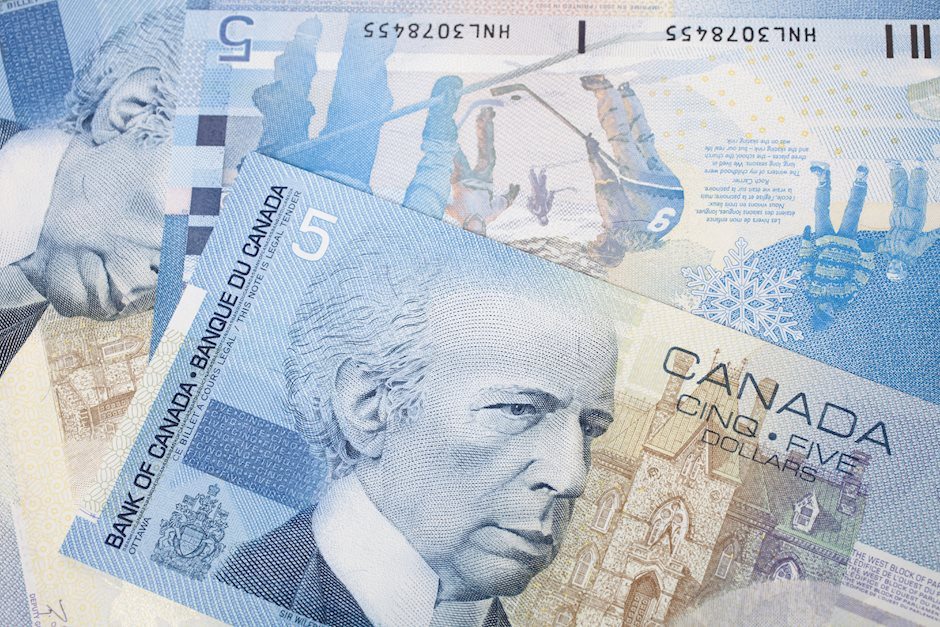USD/CAD holds below 1.3500 amid dovish Fed, higher crude oil prices
- USD/CAD remains on the defensive near 1.3485 in Tuesday’s early Asian session.
- Fed’s Daly believes it’s appropriate for the Fed to begin cutting interest rates.
- Higher crude oil prices support the CAD and create a headwind for USD/CAD.

The USD/CAD pair extends downside around 1.3485 during the early Asian session on Tuesday. Escalating geopolitical tensions in the Middle East provide some support to the commodity-linked Canadian Dollar (CAD) and weigh on USD/CAD. Later on Tuesday, the US Conference Board’s Consumer Confidence is due.
Federal Reserve (Fed) Bank of San Francisco President Mary Daly’s remarks on Monday echoed comments from Fed Chair Jerome Powell at the Jackson Hole symposium, who said that he has gained confidence that inflation is on course to the 2% target and “the time has come for policy to adjust.” Fed’s Daly noted that she believes it’s appropriate for the Fed to begin cutting interest rates. This, in turn, continues to undermine the US Dollar (USD) against the Loonie.
According to the CME FedWatch Tool, the markets have fully priced in a 25 basis points (bps) rate cut, while the possibility of a deeper rate cut stands at 30%, down from 36.5 % last Friday.
Elsewhere, data released by the US Census Bureau on Monday showed that the US Durable Goods Orders climbed to 9.9% MoM in July from a -6.9% contraction in June. This figure came in better than the estimation of a 4% increase and registered the most significant gain since May 2020. The Greenback posted modest gains in an immediate reaction to the upbeat data.
On the Loonie front, the fear of wider conflicts in the Middle East and prospects of supply disruptions in Libya boost the crude oil prices and lift the CAD. It's worth noting that higher crude oil prices are likely to underpin the Loonie for the time being, as Canada is the leading exporter of Oil to the United States.
Canadian Dollar FAQs
The key factors driving the Canadian Dollar (CAD) are the level of interest rates set by the Bank of Canada (BoC), the price of Oil, Canada’s largest export, the health of its economy, inflation and the Trade Balance, which is the difference between the value of Canada’s exports versus its imports. Other factors include market sentiment – whether investors are taking on more risky assets (risk-on) or seeking safe-havens (risk-off) – with risk-on being CAD-positive. As its largest trading partner, the health of the US economy is also a key factor influencing the Canadian Dollar.
The Bank of Canada (BoC) has a significant influence on the Canadian Dollar by setting the level of interest rates that banks can lend to one another. This influences the level of interest rates for everyone. The main goal of the BoC is to maintain inflation at 1-3% by adjusting interest rates up or down. Relatively higher interest rates tend to be positive for the CAD. The Bank of Canada can also use quantitative easing and tightening to influence credit conditions, with the former CAD-negative and the latter CAD-positive.
The price of Oil is a key factor impacting the value of the Canadian Dollar. Petroleum is Canada’s biggest export, so Oil price tends to have an immediate impact on the CAD value. Generally, if Oil price rises CAD also goes up, as aggregate demand for the currency increases. The opposite is the case if the price of Oil falls. Higher Oil prices also tend to result in a greater likelihood of a positive Trade Balance, which is also supportive of the CAD.
While inflation had always traditionally been thought of as a negative factor for a currency since it lowers the value of money, the opposite has actually been the case in modern times with the relaxation of cross-border capital controls. Higher inflation tends to lead central banks to put up interest rates which attracts more capital inflows from global investors seeking a lucrative place to keep their money. This increases demand for the local currency, which in Canada’s case is the Canadian Dollar.
Macroeconomic data releases gauge the health of the economy and can have an impact on the Canadian Dollar. Indicators such as GDP, Manufacturing and Services PMIs, employment, and consumer sentiment surveys can all influence the direction of the CAD. A strong economy is good for the Canadian Dollar. Not only does it attract more foreign investment but it may encourage the Bank of Canada to put up interest rates, leading to a stronger currency. If economic data is weak, however, the CAD is likely to fall.
Author

Lallalit Srijandorn
FXStreet
Lallalit Srijandorn is a Parisian at heart. She has lived in France since 2019 and now becomes a digital entrepreneur based in Paris and Bangkok.

















